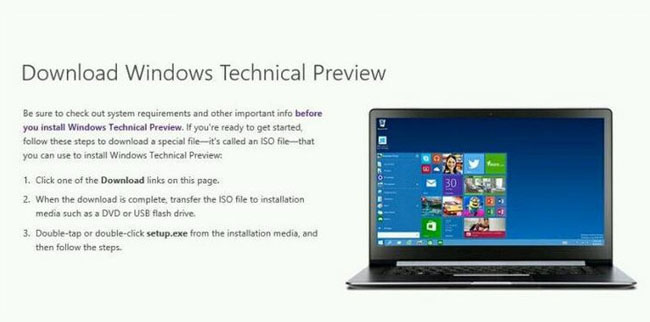Will Microsoft Change the Name of Windows 9?

Tomorrow, Microsoft is holding an event to presumably offer the first official look at Windows 9, the latest version of its flagship operating system. As it happens, there’s a bunch of details floating around about the new OS, including a report from Reuters about what Microsoft will end up calling it. Might they ditch the numbers and go for something new?
Importantly, the report doesn’t cite any sources within the company regarding the “new name” for the OS. One thing is clear: this won’t be Windows 8.2 or anything like that. The report relies on analysts who talk about the troubles Microsoft has had with the Windows 8 brand. While recent updates have made the OS much more user friendly, on the whole Windows 8 doesn’t have a super good reputation. As such, Microsoft may jump to Windows 9 with this newest iteration. However, the report speculates that it’ll get a different kind of name – without continuing the number scheme started with Windows 7 in 2009 – or will simply be called Windows.
In addition to speculation about the final name of the new Windows, a few posts over on Neowin offer some details about the new OS that are much more interesting. For starters, the technical preview that will supposedly be released after the event will weigh in at 4 GB for the 64-bit version, while the 32-bit version will be 3 GB. That information and the above screenshot came from an accidental early posting of the technical preview to Microsoft’s website.
On top of that, another post says that Windows 9 might turn out to be free for those who are upgrading from Windows 8. That news supposedly came from the mouth of one Andreas Diantoro, the president of Microsoft’s branch in Indonesia. That would be a welcome price point for users who’ve not been thrilled with Windows 8 in general, and it would probably go a long way toward helping motivate the switch from older operating systems to the latest and greatest.
Overall, I’m really looking forward to seeing what Microsoft’s got in store for us with whatever they end up calling the new version of Windows.
[Source: Reuters, Neowin (1) (2)]